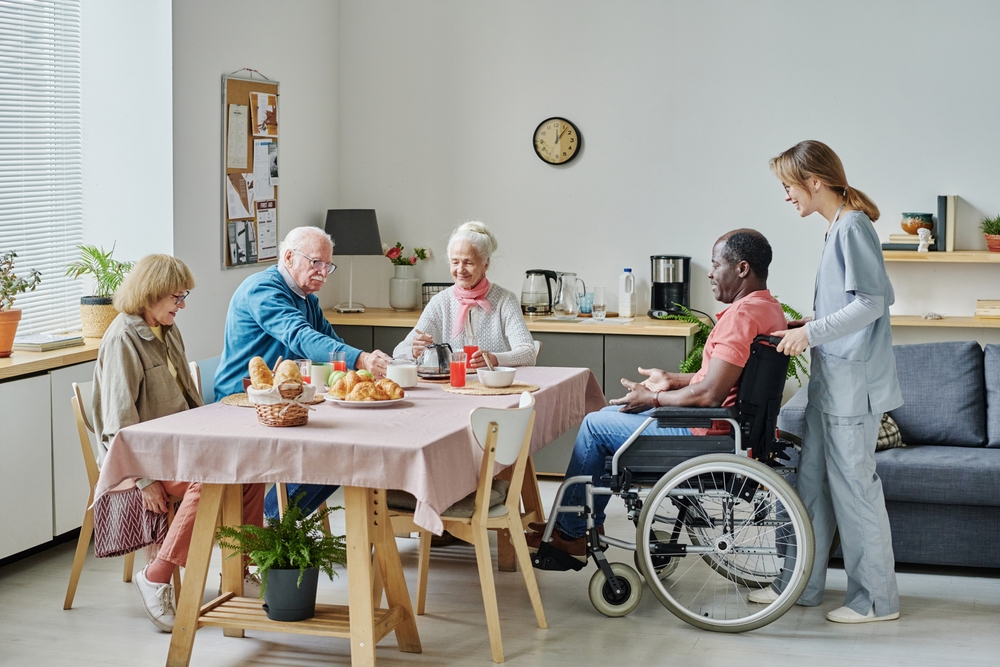Supported Residential Services (SRS) play a vital role in providing safe, comfortable, and supportive living environments for people who require additional care. From residents with disabilities to those living with complex health conditions, nutrition is a cornerstone of wellbeing in these settings. Ensuring every individual receives adequate and tailored nutrition is where Accredited Practising Dietitians (APDs) step in. Their expertise helps maintain health, prevent malnutrition, and improve the quality of life for residents in SRS facilities. This blog explores the role of dietitians in these environments, including how they support residents through services like a dietitian for NDIS participants, menu review for supported residential care, and specialised guidance on disability support nutrition.
Why Nutrition is Critical in Supported Residential Services
Residents in SRS often have diverse and complex health needs. Some may be managing chronic diseases such as diabetes or cardiovascular conditions, while others may require modified diets due to swallowing difficulties, sensory issues, or mobility limitations. Malnutrition risk is particularly high in supported care environments, which makes professional nutrition support essential.
Dietitians provide evidence-based strategies to ensure meals meet both the medical needs and personal preferences of residents. By focusing on balance, variety, and adequacy, dietitians help reduce health risks, support recovery, and promote a better quality of life for individuals living in residential care.
The Role of Dietitians in SRS
1. Tailoring Individual Care Plans
No two residents are the same. A key role of dietitians in SRS is designing personalised nutrition care plans. This involves conducting assessments of each resident’s medical history, current health conditions, food preferences, and cultural considerations. For residents funded under the NDIS, this often means working closely with support teams to ensure individual goals are met through a dietitian for NDIS participants approach.
2. Supporting Staff with Education and Training
Dietitians don’t just work with residents—they also support the staff who prepare and serve meals. By providing training on nutrition standards, portion sizes, and texture-modified diets, dietitians empower care staff to deliver meals that are both safe and nourishing.
3. Menu Reviews and Compliance
Menus in supported residential care must do more than look good on paper—they must meet regulatory requirements, offer variety, and provide adequate nutrition across the board. A menu review for supported residential care done by a registered dietitian ensures that every resident’s needs are considered, including those with higher nutritional requirements or special dietary restrictions. Regular reviews also help facilities stay compliant with government standards and improve overall meal quality.
4. Monitoring and Evaluation
Nutrition care is an ongoing process. Dietitians routinely monitor residents’ weight, health outcomes, and meal satisfaction to make adjustments where needed. This proactive approach helps prevent malnutrition, manage chronic conditions, and respond quickly to changes in a resident’s health.
Disability Support and Nutrition
Residents living with disabilities may face unique challenges in maintaining a balanced diet, including difficulties with chewing, swallowing, or managing sensory sensitivities. Accredited Practising Dietitians can provide tailored solutions through disability support nutrition, ensuring residents receive meals that are safe, enjoyable, and aligned with their health needs.
By working closely with carers, support coordinators, and healthcare teams, dietitians ensure that nutrition is integrated into broader disability care plans. This holistic approach contributes to improved independence, wellbeing, and overall health outcomes for people with disability.
Collaboration with Health and Care Teams
Dietitians in SRS work as part of a multidisciplinary team. They collaborate with nurses, doctors, speech pathologists, and support workers to ensure residents’ care is consistent and effective. This team-based approach makes it easier to address complex health issues such as malnutrition, pressure injuries, or chronic disease management.
Government Funding Options for SRS Nutrition Support
Accessing professional nutrition support in SRS can be made more affordable through government funding programs. Residents may be eligible for support via the NDIS, which often covers dietitian services under health and disability management. Others may be able to use Medicare rebates for chronic disease management plans, while older adults may access assistance through Home Aged Care Packages. These funding options make it easier for facilities and individuals to engage dietitians, ensuring no resident misses out on essential nutrition support.
Onsite and Telehealth Services
Dietitians working with SRS facilities often provide both onsite visits and flexible telehealth consultations. Onsite services allow for hands-on assessments, menu planning, and staff training, while telehealth ensures facilities across the country can access expert support, regardless of their location. This dual approach helps SRS teams maintain consistent, high-quality nutrition care for residents, whether they’re based in metropolitan areas or rural communities.
Why Dietitians are Essential in SRS
The role of dietitians in Supported Residential Services goes far beyond meal planning. From providing personalised care to conducting menu review for supported residential care, their work ensures residents receive adequate and enjoyable meals every day. By incorporating dietitian for NDIS participants strategies and tailoring plans through disability support nutrition, dietitians enhance health, independence, and quality of life for people in supported living environments.






